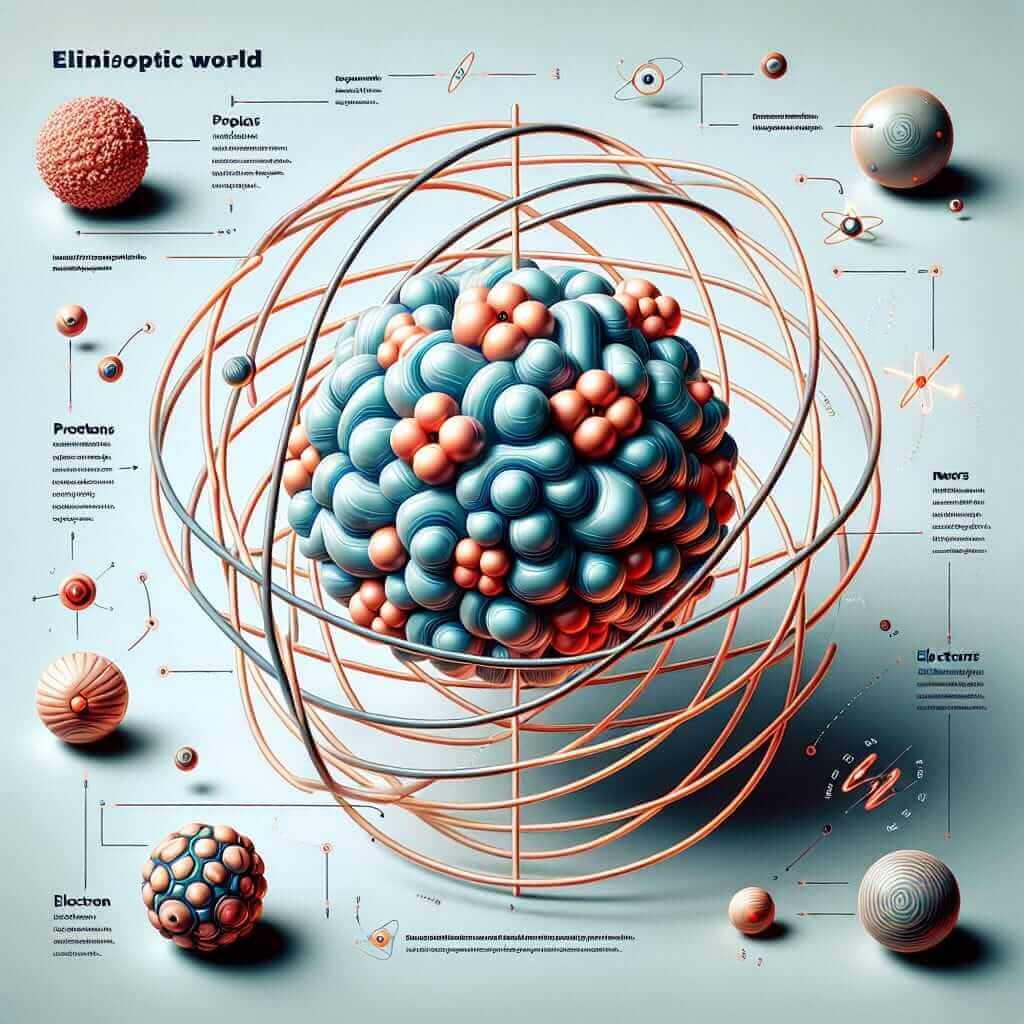Understanding the Relevance of Scientific Topics in IELTS
The IELTS exam, particularly the Speaking section, often delves into broader themes related to science, history, and the natural world. While you won’t be tested on complex scientific theories, having a general understanding of topics like “how atoms were discovered” can be incredibly beneficial. It demonstrates your ability to:
Nội dung bài viết
- Understanding the Relevance of Scientific Topics in IELTS
- Unraveling the Mystery: A Historical Journey of Atomic Discovery
- Ancient Philosophers: The Seeds of Atomism
- The Scientific Revolution: Laying the Groundwork
- The 20th Century and Beyond: Delving Deeper
- Applying Atomic Knowledge in IELTS Speaking
- Tips for Success
- Conclusion
- Handle complex vocabulary: Discussing scientific discoveries requires using specific terminology, showcasing your range of vocabulary.
- Articulate abstract concepts: Theories about the invisible world of atoms highlight your capacity to explain abstract ideas clearly.
- Engage in thoughtful discussions: Knowledge of such topics equips you to contribute meaningfully to conversations, a key aspect of the IELTS Speaking assessment.
Unraveling the Mystery: A Historical Journey of Atomic Discovery
The journey to understanding atoms spans centuries, involving numerous scientists and their groundbreaking experiments. Here’s a simplified timeline to guide you:
Ancient Philosophers: The Seeds of Atomism
- Democritus and Leucippus (5th Century BC): These Greek philosophers proposed the concept of indivisible particles called “atoms,” meaning “uncuttable” in Greek. They believed all matter was composed of these tiny, indestructible units.
The Scientific Revolution: Laying the Groundwork
- John Dalton (Early 1800s): Dalton’s atomic theory, based on experimental evidence, revived the idea of atoms. He stated that elements consist of identical atoms, and chemical reactions involve the rearrangement of these atoms.
- J.J. Thomson (Late 1800s): Thomson’s discovery of the electron, a negatively charged subatomic particle, using cathode ray tubes, challenged the notion of atoms as indivisible entities.
The 20th Century and Beyond: Delving Deeper
- Ernest Rutherford (Early 1900s): Rutherford’s gold foil experiment led to the discovery of the nucleus, a tiny, dense, positively charged center within the atom. This experiment revolutionized our understanding of atomic structure.
- Niels Bohr (1913): Bohr’s model of the atom, with electrons orbiting the nucleus at specific energy levels, further refined our picture of the atom.

Applying Atomic Knowledge in IELTS Speaking
While you won’t be expected to deliver a lecture on atomic theory, you might encounter related themes in the IELTS Speaking test. For example:
Part 1:
- “Do you have any hobbies related to science?” – You could mention an interest in documentaries about scientific discoveries, such as those about atoms.
Part 2:
- “Describe an important scientific discovery.” – Discussing the discovery of the atom, highlighting its impact on our understanding of the universe, would be a relevant response.
Part 3:
- “Do you think scientific advancements always have a positive impact on society?” – This open-ended question allows you to draw on your knowledge of how atomic discoveries have led to both advancements (e.g., medicine, energy) and ethical dilemmas (e.g., nuclear weapons).
Tips for Success
- Focus on clarity over complexity: Instead of memorizing intricate details, aim to explain the key concepts of atomic discovery in a clear and concise manner.
- Use relevant vocabulary accurately: Incorporate terms like “atom,” “nucleus,” “electron,” “experiment,” and “theory” appropriately in your responses.
- Relate the topic to your own experiences or opinions: For instance, share your thoughts on the significance of atomic discoveries or how they have influenced our lives today.
Conclusion
Understanding fundamental scientific concepts like the discovery of atoms can significantly enhance your IELTS Speaking performance. It allows you to demonstrate vocabulary range, explain abstract ideas, and engage in thoughtful discussions – all crucial elements assessed in the exam. Remember to focus on clear communication, accurate vocabulary, and personal connections to impress the examiner and achieve your desired band score.